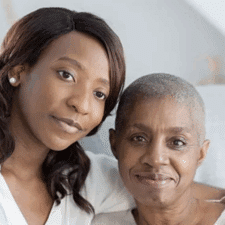
Pancreatic cancer, which is the disease that took the life of the Queen of Soul, Aretha Franklin, is considered to be incurable. Many people who have the disease generally have a 5-10 percent chance of recovery. The chances tend to be even lower for someone of older and overweight.
What Causes Pancreatic Cancer?
As with many types of cancer, the causes of pancreatic cancer are simply not known. Although certain pancreatic cancer risk factors have been identified, there is no complete understanding of the disease.
Pancreatic cancer develops when a cell in the pancreas acquires damage to its DNA that causes it to behave and multiply abnormally (no one knows exactly how this process happens). A single cancer cell grows and divides rapidly, becoming a tumor that does not respect normal boundaries in the body. Eventually, cells from the tumor can travel elsewhere in the body (metastasize) through the blood or lymphatic system.
Some of these mutations happen randomly. Others occur in response to things we do or experience in the environment. Some may be inherited.

Pancreatic Cancer Risk Factors
Though the underlying causes of pancreatic cancer are still not understood, certain risk factors for pancreatic cancer have been identified. These factors are present more often in people who get pancreatic cancer than in people who don’t.
There are multiple pancreatic risk factors, although most are only weakly associated with pancreatic cancer. Many people with pancreatic cancer don’t have any one risk factor:
• Genetics. Five percent to 10% of people with pancreatic cancer have an immediate family member who also has pancreatic cancer. Several different genes have been associated with the increased risk, although no “pancreatic cancer gene” has yet been identified.
• Diabetes. People with diabetes are slightly more likely to get pancreatic cancer. There’s some controversy in these cases as to whether diabetes causes pancreatic cancer, or if the pancreas starts to malfunction before cancer develops, causing diabetes.
• Smoking. Cigarette smoking is well known to increase the risk for pancreatic cancer. The more a person smokes, the higher the risk of pancreatic cancer. Ten years after quitting smoking, the risk returns to about that of someone who never smoked.
• Obesity and inactivity. In a study of 88,000 nurses, those who were obese (body mass index higher than 30) were more likely to develop pancreatic cancer. Those who exercised frequently were about half as likely to get pancreatic cancer, compared to those who did not exercise at all.
• Diet. Can what we eat cause pancreatic cancer? A diet high in fat and meat (especially smoked or processed meat) has been linked to pancreatic cancer in some studies. Eating a healthy diet rich in fruits and vegetables decreased pancreatic cancer risk in other studies. Still other studies suggest there’s no identifiable link between diet and pancreatic cancer.
• Lycopene and selenium. Studies have shown low levels of these nutrients in some people who developed pancreatic cancer. That’s not proof that low levels cause pancreatic cancer, though. Any diet that includes lean meat and red or yellow vegetables should provide adequate lycopene and selenium.
Unfortunately, eliminating your risk factors for pancreatic cancer many not entirely reduce your pancreatic cancer risk. But eating a healthy diet, keeping a healthy weight, and exercising frequently will improve overall health, and reduce your risk of other health problems.
Treatment
According to the Mayo Clinic, treatment for pancreatic cancer depends on the stage and location of the cancer as well as on your overall health and personal preferences. For most people, the first goal of pancreatic cancer treatment is to eliminate the cancer, when possible. When that isn’t an option, the focus may be on improving your quality of life and preventing the cancer from growing or causing more harm.
Treatment may include surgery, radiation, chemotherapy or a combination of these. When pancreatic cancer is advanced and these treatments aren’t likely to offer a benefit, your doctor will offer symptom relief (palliative care) that makes you as comfortable as possible.
Surgery
Operations used in people with pancreatic cancer include:
Surgery for tumors in the pancreatic head. If your cancer is located in the head of the pancreas, you may consider an operation called a Whipple procedure (pancreaticoduodenectomy).
The Whipple procedure is a technically difficult operation to remove the head of the pancreas, the first part of the small intestine (duodenum), the gallbladder and part of the bile duct. In some situations, part of the stomach and nearby lymph nodes may be removed as well. Your surgeon reconnects the remaining parts of your pancreas, stomach and intestines to allow you to digest food.
Surgery for tumors in the pancreatic body and tail. Surgery to remove the left side (body and tail) of the pancreas is called distal pancreatectomy. Your surgeon may also remove your spleen.
Surgery to remove the entire pancreas. In some people, the entire pancreas may need to be removed. This is called total pancreatectomy. You can live relatively normally without a pancreas but do need lifelong insulin and enzyme replacement.
Surgery for tumors affecting nearby blood vessels. Many people with advanced pancreatic cancer are not considered eligible for the Whipple procedure or other pancreatic surgeries if their tumors involve nearby blood vessels. At a very few medical centers in the United States, highly specialized and experienced surgeons will safely perform these operations with removal and reconstruction of parts of blood vessels in select patients.
Each of these surgeries carries the risk of bleeding and infection. After surgery some people experience nausea and vomiting if the stomach has difficulty emptying (delayed gastric emptying). Expect a long recovery after any of these procedures. You’ll spend several days in the hospital and then recover for several weeks at home.
Extensive research shows pancreatic cancer surgery tends to cause fewer complications when done by highly experienced surgeons at centers that do many of these operations. Don’t hesitate to ask about your surgeon’s and hospital’s experience with pancreatic cancer surgery. If you have any doubts, get a second opinion.
Chemotherapy
Chemotherapy uses drugs to help kill cancer cells. These drugs can be injected into a vein or taken orally. You may receive one chemotherapy drug or a combination of them.
Chemotherapy can also be combined with radiation therapy (chemoradiation). Chemoradiation is typically used to treat cancer that has spread beyond the pancreas, but only to nearby organs and not to distant regions of the body. At specialized medical centers, this combination may be used before surgery to help shrink the tumor. Sometimes it is used after surgery to reduce the risk that pancreatic cancer may recur.
In people with advanced pancreatic cancer, chemotherapy is often used to control cancer growth and prolong survival.
Radiation therapy
Radiation therapy uses high-energy beams, such as those made from X-rays and protons, to destroy cancer cells. You may receive radiation treatments before or after cancer surgery, often in combination with chemotherapy. Or your doctor may recommend a combination of radiation and chemotherapy treatments when your cancer can’t be treated surgically.
Radiation therapy usually comes from a machine that moves around you, directing radiation to specific points on your body (external beam radiation). In specialized medical centers, radiation therapy may be delivered during surgery (intraoperative radiation).
Radiation therapy traditionally uses X-rays to treat cancer. Some medical centers offer proton beam radiation therapy, which may be a treatment option for some people with advanced pancreatic cancer.
Clinical trials
Clinical trials are studies to test new treatments, such as systemic therapy, and new approaches to surgery or radiation therapy. If the treatment being studied proves to be safer and more effective than are current treatments, it can become the new standard of care.
Clinical trials for pancreatic cancer might give you a chance to try new targeted therapy, chemotherapy drugs, immunotherapy treatments or vaccines.
Clinical trials can’t guarantee a cure, and they might have serious or unexpected side effects. On the other hand, cancer clinical trials are closely monitored to ensure they’re conducted as safely as possible. And they offer access to treatments that wouldn’t otherwise be available to you.
Talk to your doctor about what clinical trials might be appropriate for you.








